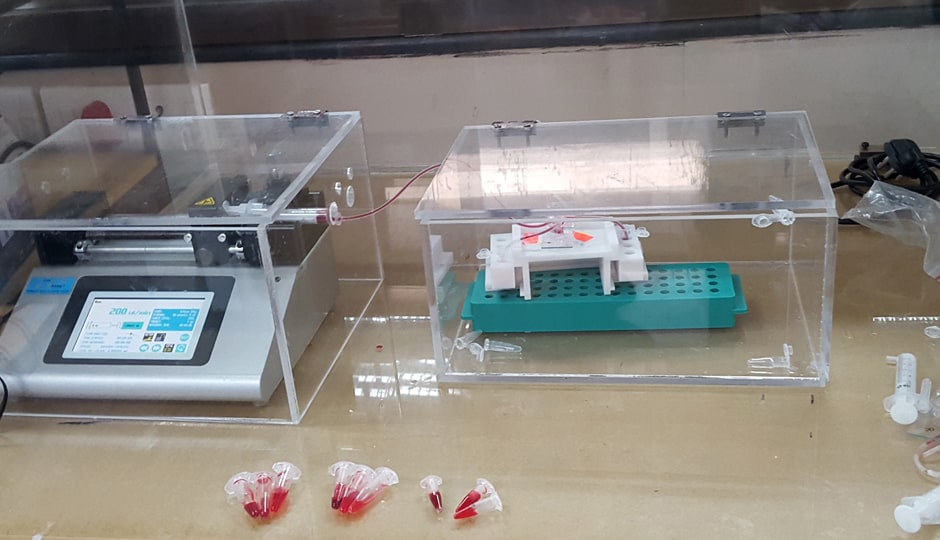 Microscopes are essential tools in pathology labs for detention and diagnosis of endemic diseases, such as, malaria, filaria, tuberculosis, etc. Taking the microscope to the field will make the process of detection and diagnosis rapid. What is needed is a robust mobile microscope which can be used at point-of- care, with advanced features of digital microscope. The prototype which we have developed is a portable all-in- one system which can display, magnify, capture, store and transmit high resolution slide images. We are working towards the development of algorithms which will can analyse the slide images. This device can also be used for educational purpose as it can be connected to external display, storage or communication devices. The development of the Mobile Microscope started with the detection and diagnosis of Sickle Cell Disease which is endemic to tribal populations in various parts of India and also in Africa. The Mobile Microscope is expected to make a big difference in ensuring patient compliance. A lot of patients fall through the gap between initial (non-confirmatory) screening at the point of care and confirmed diagnosis in a distant hospital. Confirmed diagnosis allows the doctors to start the disease specific treatment (to avoid drug resistance) at an early stage. By enabling diagnosis at the point of care, this system has the potential to reduce the burden of healthcare costs due to missed diagnosis, late diagnosis, drug resistance, etc. Mobile microscope is targeted towards screening of malaria and sickle cell disease in the field. Both these problems primarily affect the rural and tribal population, many of which are economically disadvantaged.
Microscopes are essential tools in pathology labs for detention and diagnosis of endemic diseases, such as, malaria, filaria, tuberculosis, etc. Taking the microscope to the field will make the process of detection and diagnosis rapid. What is needed is a robust mobile microscope which can be used at point-of- care, with advanced features of digital microscope. The prototype which we have developed is a portable all-in- one system which can display, magnify, capture, store and transmit high resolution slide images. We are working towards the development of algorithms which will can analyse the slide images. This device can also be used for educational purpose as it can be connected to external display, storage or communication devices. The development of the Mobile Microscope started with the detection and diagnosis of Sickle Cell Disease which is endemic to tribal populations in various parts of India and also in Africa. The Mobile Microscope is expected to make a big difference in ensuring patient compliance. A lot of patients fall through the gap between initial (non-confirmatory) screening at the point of care and confirmed diagnosis in a distant hospital. Confirmed diagnosis allows the doctors to start the disease specific treatment (to avoid drug resistance) at an early stage. By enabling diagnosis at the point of care, this system has the potential to reduce the burden of healthcare costs due to missed diagnosis, late diagnosis, drug resistance, etc. Mobile microscope is targeted towards screening of malaria and sickle cell disease in the field. Both these problems primarily affect the rural and tribal population, many of which are economically disadvantaged.




